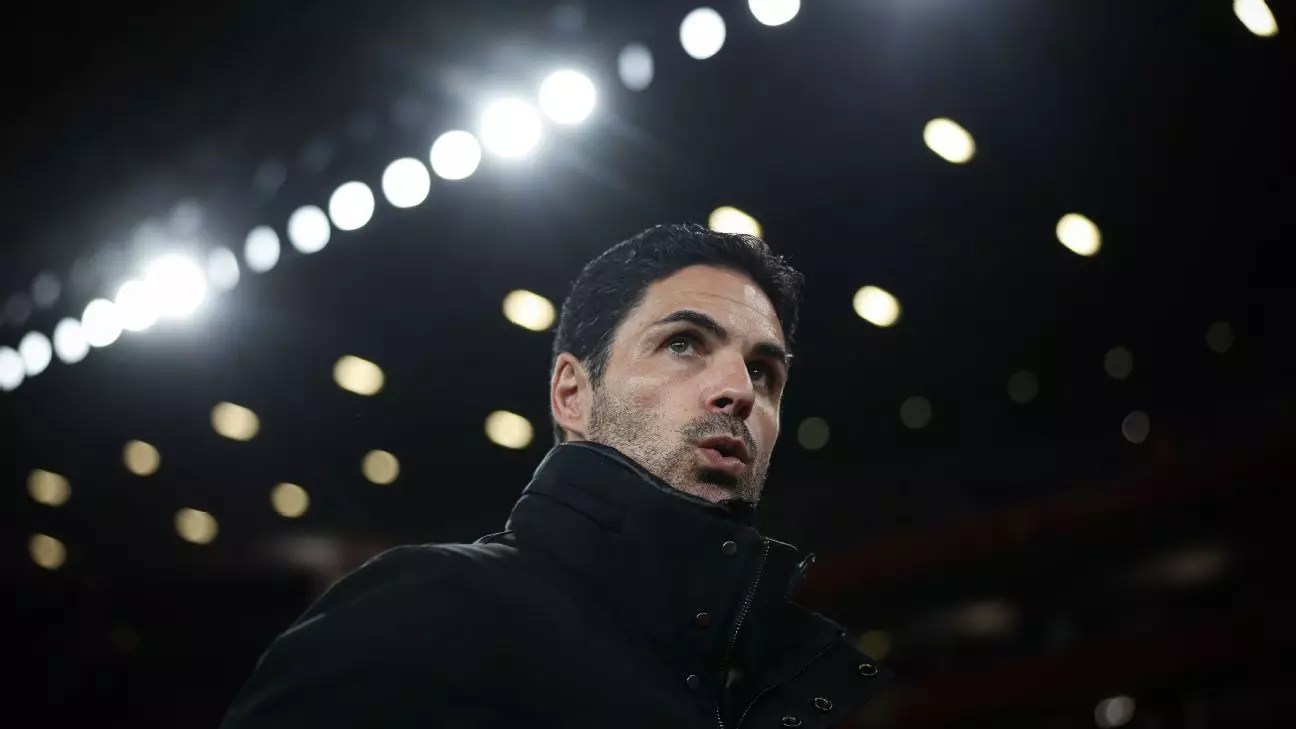Arsenal finds itself in the midst of a daunting injury crisis, creating challenges that could test their mettle as they prepare to face Premier League leaders Liverpool. Coach Mikel Arteta has publicly declared that the team will not indulge in self-pity, asserting that adversity can, and should, breed resilience. With key players sidelined, Arsenal’s approach to the upcoming match will be critical—not just for the game itself, but also for their season and morale moving forward.
As the squad navigates through a punishing list of absences, including William Saliba’s suspension and significant injuries to players like Bukayo Saka, Riccardo Calafiori, and Jurriën Timber, questions loom over the team’s tactical setup. The loss of captain Martin Ødegaard and defender Takehiro Tomiyasu adds to the uncertainty surrounding Arteta’s starting lineup. Such constraints force a coach to be innovative and flexible with strategies, as formations may need to adapt on the fly. Arteta’s comments reflect an understanding of the precarious situation: “Until tomorrow, no [I don’t know my team]… a lot of possibilities, a lot of ifs.” This level of adaptability will be crucial for Arsenal if they aim to break Liverpool’s early-season momentum.
Arteta’s philosophy seems firmly rooted in a mindset of unyielding mental toughness. He emphasized the importance of maintaining a positive outlook despite mounting challenges, revealing a profound understanding of how psychological factors influence performance in high-stakes environments. The manager implied that rather than wallowing in setbacks, the focus should shift to emerging opportunities for players who may not typically see significant game time. “Get on with it. Show how much you want it,” he iterated, suggesting that resilience isn’t merely a buzzword but rather a core tenet of his coaching ethos.
In the midst of adversity, the ability to galvanize his squad is essential. Arteta believes that this tough mentality could foster a communal spirit within the team and connect them with their supporters, further emphasizing the significance of the team’s identity in such trying circumstances.
One of the silver linings of this injury crisis is the potential for young academy players to step up. The readiness of Jakub Kiwior and Oleksandr Zinchenko is notable, but it is the prospect of giving opportunities to teenagers like Myles Lewis-Skelly and Ethan Nwaneri that could define this match. Arteta believes these youngsters can have a tangible impact, not just in terms of skill but also in energizing the entire squad. Their newcomer’s buoyancy can inspire the rest of the team, creating a ripple effect that may prove vital in overcoming the seasoned Liverpool side.
While many coaches might lean on experience during trying times, Arteta’s approach seeks to leverage youthful exuberance. His confidence in the younger players underscores his commitment to nurturing talent within the club, making a strong statement about the club’s future vision.
Going into a fixture against formidable opponents like Liverpool, Arsenal must remain astute and strategic in their approach. Arteta’s insistence on versatility and adaptability can prove beneficial against a team that has shown ruthless efficiency under their new manager, Arne Slot. The key takeaway from Arteta’s philosophy is that while the loss of experienced players can seem detrimental, it also presents an opportunity for growth and development—an essential tenet for a club seeking to reestablish itself among England’s elite.
The match promises to be a litmus test for Arsenal’s depth and cohesion. How effectively they can transition their philosophy from talk into action will be crucial. With the fervent support of their home crowd, a determination to face adversity, and an upsurge of youthful talent, Arsenal has the potential to not only compete but also to thrive against the odds in this pivotal clash. The resilience displayed could mark a turning point for a club eager to solidify its status in the upper echelon of English football.


Leave a Reply